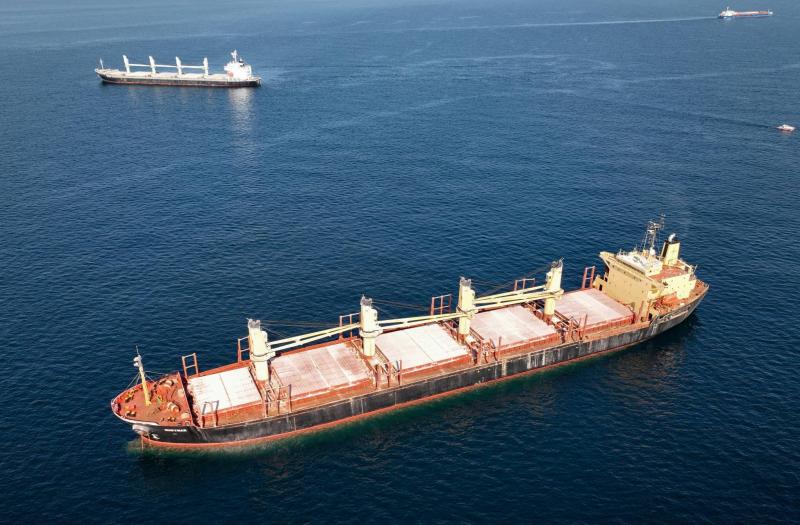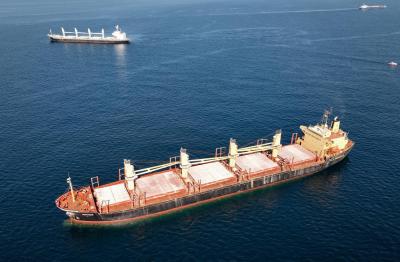The internationally recognized Yemeni government announced today, Saturday, that the ship Rubymar, owned by a British company and attacked by Houthi forces last month, has sunk in the Red Sea, warning of an "environmental catastrophe" due to the ship's cargo of fertilizers. If confirmed, this would be the first ship to sink since the Houthis began targeting commercial ships in November, forcing shipping companies to divert vessels to a longer and more costly route around the southern tip of the African continent. The Houthi movement claims it is acting in solidarity with Palestinians in the Gaza Strip.
A Yemeni government team visited the Belize-flagged cargo ship on Monday and reported that water was flooding part of it. A statement from the government on Saturday noted that it sank in the southern Red Sea yesterday, Friday. The U.S. Fifth Fleet has not yet responded to requests to confirm the ship's sinking on Saturday. The British Maritime Trade Operations agency stated on Saturday that it received information about a ship sinking but did not identify it.
The U.S. military previously stated that the attack caused significant damage to the cargo ship and resulted in an oil slick approximately 29 kilometers long, adding that it was carrying over 41,000 tons of fertilizers when it was attacked. Ahmed Awad bin Mubarak, the Minister of Foreign Affairs in the internationally recognized Yemeni government, posted on X that "the sinking of the Rubymar is an environmental disaster unprecedented in (the state of) Yemen and the region."
"It is a new tragedy for our country and our people, and we pay the price daily for the adventures of the Houthi militia." Ali Al-Sualmah, director of the Marine Sciences Station at the University of Jordan, remarked that the release of around 41,000 tons of fertilizers into the Red Sea poses a severe threat to marine life. Al-Sualmah added that the excess nutrients could stimulate excessive algal growth, leading to oxygen depletion that would jeopardize marine organisms' survival.
He emphasized the necessity for Red Sea countries to urgently adopt a monitoring agenda for polluted areas and to implement a cleanup strategy. Shengtian Tony Wang, an assistant professor in the Earth and Environmental Sciences Department at Boston College, indicated that the overall impact depends on how the currents disperse the fertilizers and how they are released from the sunken ship.
The ecosystem of the southern Red Sea is characterized by coral reefs, coastal mangroves, and diverse marine life. Wang stated, "If the ship is salvaged before a major leak occurs, it may be possible to prevent a major environmental disaster." Last year, the region averted an environmental catastrophe when the United Nations successfully removed over a million barrels of oil from a dilapidated supertanker moored off the coast of Yemen. Such operations may be more challenging under current conditions.
Houthi attacks have heightened concerns about the potential spillover of the conflict between Israel and Hamas, which could destabilize the Middle East.




